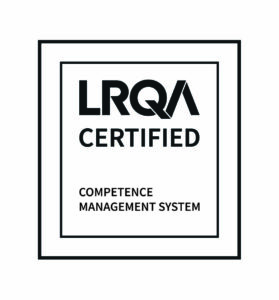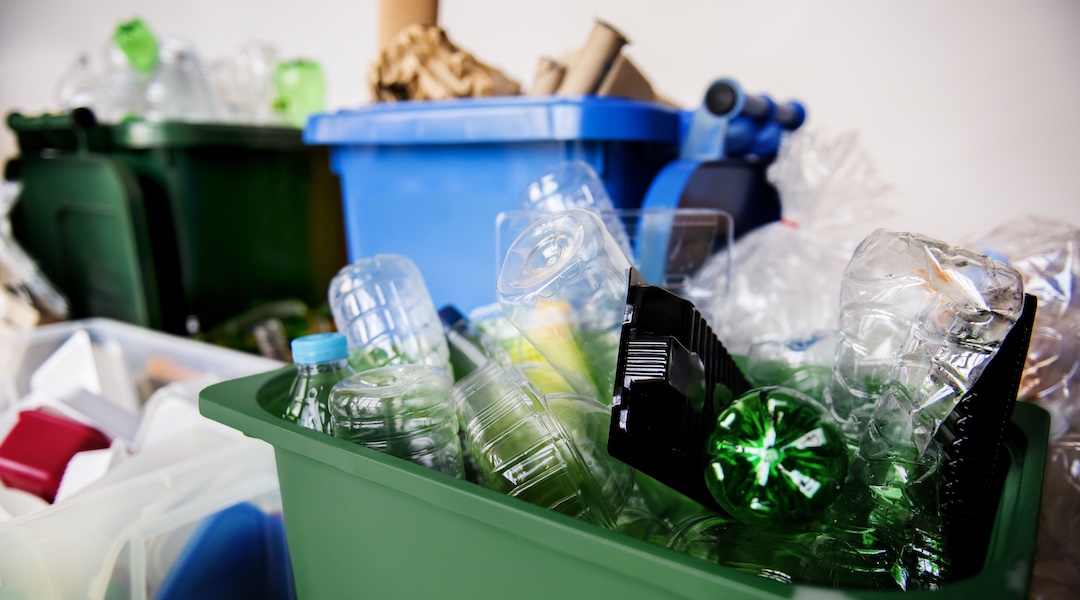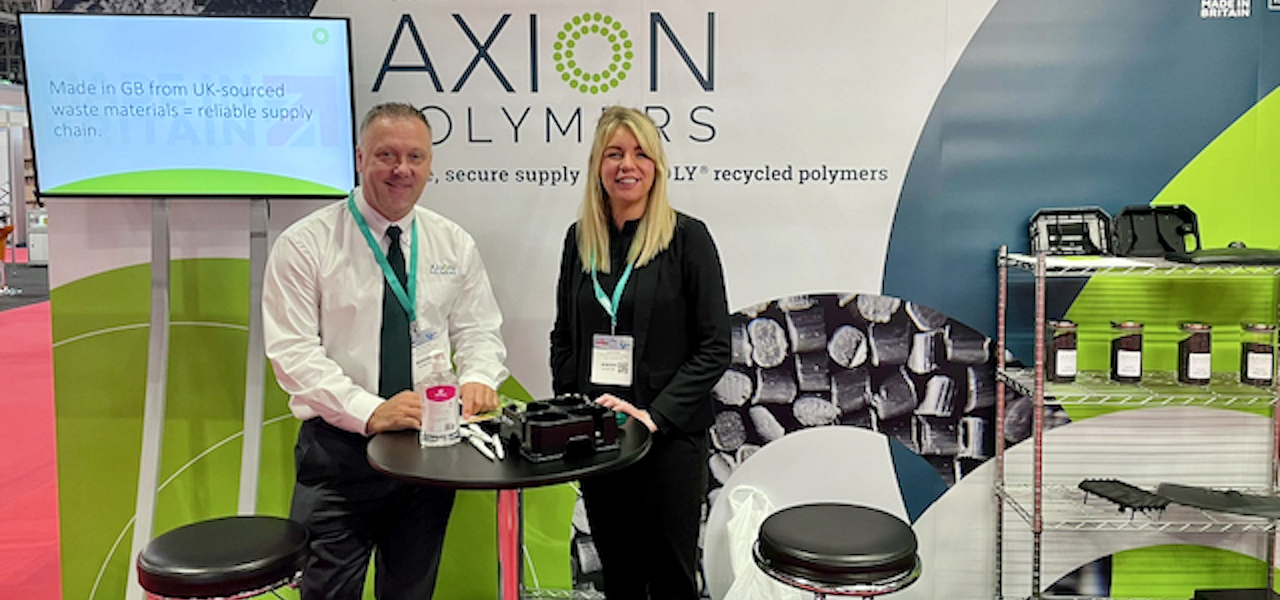Axion Polymers is calling on businesses across all industries to embrace recycled polymers as a vital tool in achieving their sustainability goals.
Ahead of Interplas 2023, the UK’s leading plastics exhibition and conference later this month, Axion says businesses who are looking at ways to operate more sustainably can make a significant impact by using recycled raw materials to make new goods.
Manufacturers looking to move towards net zero and meet industry regulations could benefit hugely by using recycled polymers and increasingly, it says, companies will be required to use recycled content in new goods by regulations and industry commitments demanding circularity for raw materials. For example, the EU recently proposed a regulation which would improve the circularity of materials in vehicle manufacture, by mandating that 25% of the plastic used to build a new vehicle is recycled plastic, of which 25% must be recycled from end-of-life vehicles.
Axion says its technical team can advise businesses looking to make the switch to recycled polymer and provide practical support where required. Axpoly recycled polymer grades are manufactured in the UK to ISO9001 quality standards and are REACH and RoHS compliant. Its engineering polymers match virgin material in quality and are suitable for use in a range of injection moulding applications, from vehicle components to consumer electronics to construction products.
Investment in its laboratory facilities means that Axion Polymers can carry out in-house accurate and rigorous material testing of its recycled polymer infeed and finished products. Customers can be confident that Axpoly recycled polymer grades comply with permitted levels of substances of very high concern (SVHCs) and persistent organic pollutants (POPs).
Laura Smith, commercial manager – polymers and co-products, Axion Polymers, said:
“Plastic recycling is an essential industry in the middle of a sustainable evolution. Consumer trends together with government policies and targets provide a clear economic incentive for businesses to substitute virgin polymers with environmentally preferred alternatives. At S. Norton Group, we’re proud our processes showcase how plastic waste can be harnessed to create valuable new products thereby conserving precious resources, reducing dependence on landfill and protecting the environment from greenhouse gas emissions.”
Axion Polymers has a secure infeed material supply from its parent company S. Norton Group, operating a unique process technology which converts non-metallic waste from end-of-life vehicles and waste electronic goods into recycled plastics, aggregates for construction, and alternative fuels supplying to energy from waste plants. It operates two processing plants in the Manchester area, with primary sorting taking place at Trafford Park and polymer refining and extrusion at Salford.
Tony Hayer, S. Norton managing director, added: “At a time of great change in the plastics industry, when businesses are facing mounting pressure to adopt circular practices and reduce their environmental footprint, using recycled polymers has plenty of benefits, including reduced demand for oil-based virgin polymer and significant carbon savings.”
Using Axpoly PP gives an 81% carbon saving and using Axpoly ABS gives a 90% carbon saving, compared with using virgin polymer.
Interplas takes place on September 26-28, 2023 at NEC, Birmingham, featuring over 500 exhibitors and enabling over 12,000 attendees from across the industry to discover the latest innovations in plastics manufacturing processes, technologies, materials and services. Axion Polymers will be located in Hall 4 on stand A8 and the team will be on hand to discuss how injection-moulders and manufacturers can use high quality recycled polymers, or bespoke blends with virgin material, in a wide range of product applications.











